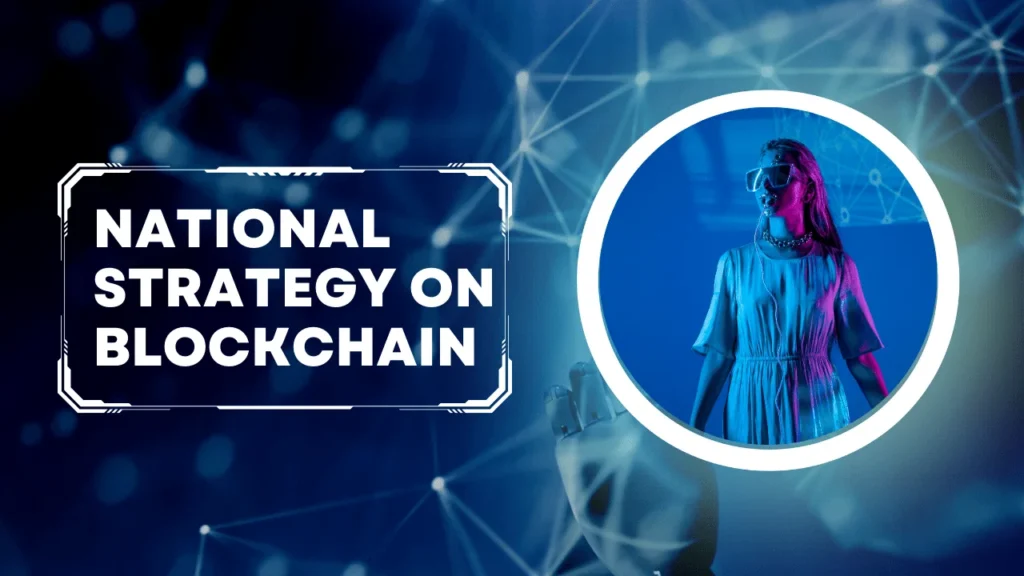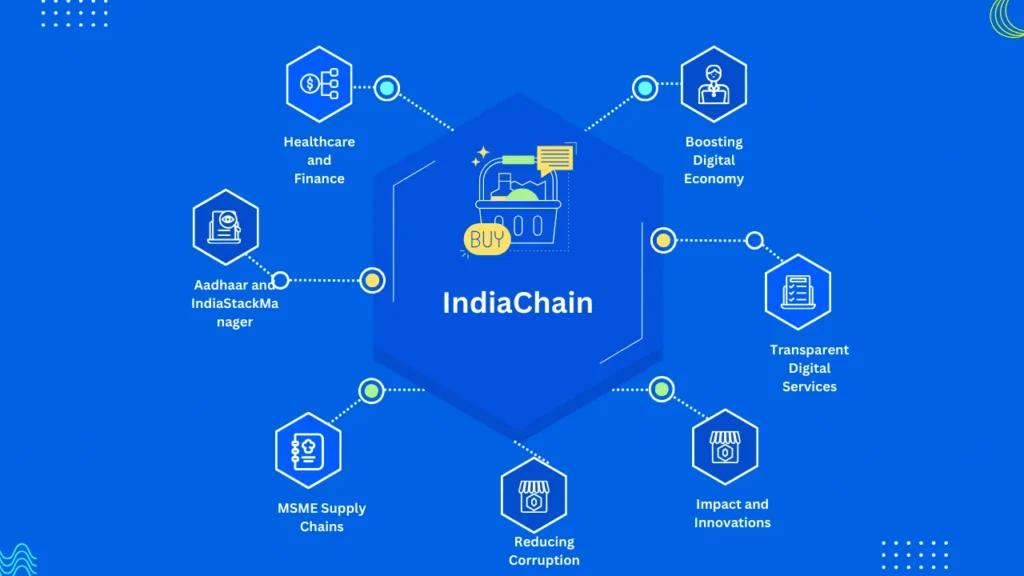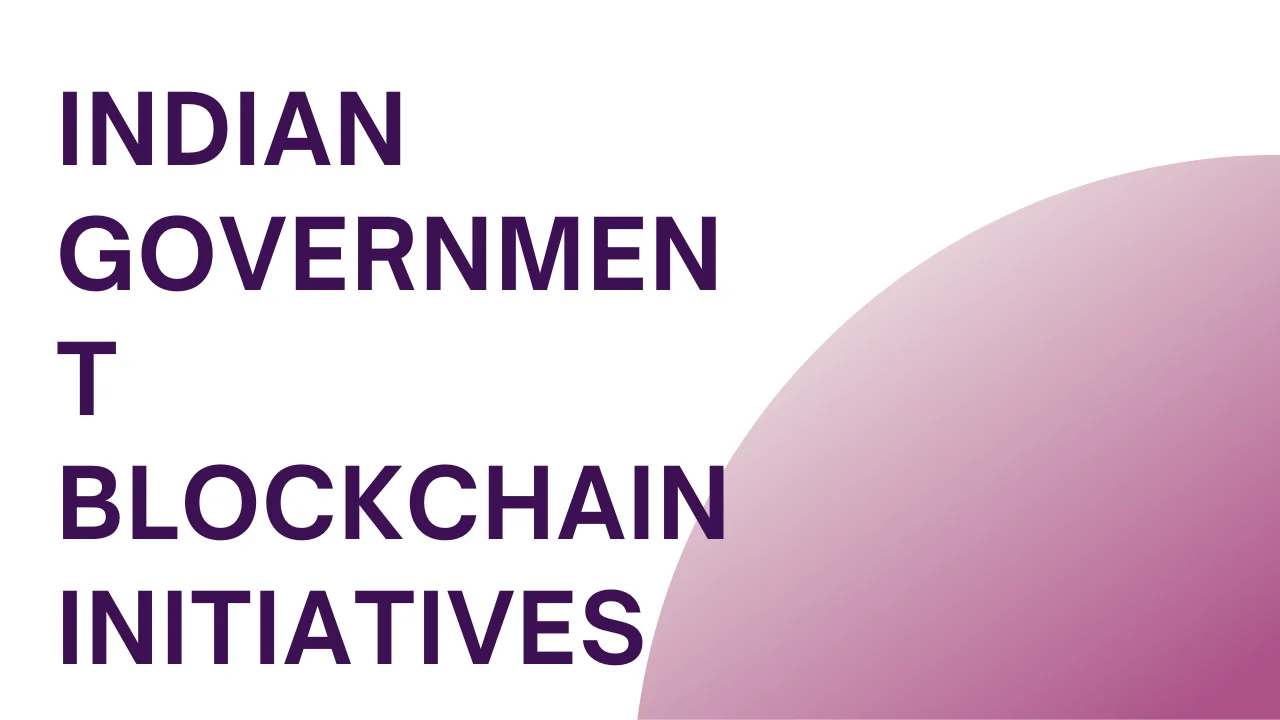The Indian Government Blockchain Initiatives are indicative of a proactive stance towards adopting blockchain technology, marking the beginning of digital transformation in the country. A more secure, transparent, and efficient future for digital services is promised by this innovative leap, which is aimed at revolutionizing various sectors such as governance, finance, and healthcare. Under the leadership of the Ministry of Electronics and Information Technology (MeitY), the ‘National Strategy on Blockchain’ was developed, laying the groundwork for this transformation. In order to encourage research, innovation, and application development, this strategy envisions a reliable digital platform that uses shared blockchain infrastructure.
Why Blockchain for India?
The many goals of the Indian government toward a more digitally empowered society are highly congruent with the many advantages offered by blockchain technology. Blockchain technology can improve government processes in terms of efficiency, transparency, and security by allowing decentralized and immutable record-keeping. It’s a priceless asset for the biggest democracy in the world because it helps fight corruption, streamlines administrative processes, and allows for secure transactions.
National Strategy on Blockchain

The National Strategy on Blockchain, which forms the backbone of India’s blockchain efforts, details an extensive plan to incorporate blockchain technology into different government operations.
Digital Trust Infrastructure
The National Strategy is centered around the goal of constructing a reliable digital infrastructure that can accommodate numerous applications, such as healthcare policy enforcement and land records management. Building decentralized blockchain networks that can support trustworthy digital services is an important part of this.
Research and Innovation
The plan places a premium on research and development because it acknowledges that blockchain technology is still in its infancy. To keep India at the vanguard of blockchain application development, it seeks to foster an atmosphere that is favorable to technological progress.
IndiaChain

As part of the National Strategy, the massive IndiaChain project is working toward its goal of becoming the first national blockchain network in the world. It is a major step towards a digitally empowered India since it aims to use blockchain technology to enhance public service delivery and governance.
Aadhaar and IndiaStack
Blockchain projects rely heavily on connecting to preexisting digital systems, such as Aadhaar and IndiaStack. By working together, these two forces should make it easier for startups and small businesses to gain access to financial services and digital identity verification.
MSME Supply Chains
With blockchain technology, supply chain management for micro, small, and medium-sized enterprises (MSMEs) will be more efficient, transparent, and resilient. Blockchain technology can greatly enhance the operational capacities of small and medium-sized businesses by offering a trustworthy platform for transaction and record-keeping.
Impact and Innovations
In addition to promoting the use of blockchain technology, the Indian government is aiming to have a multiplier impact on the country’s economy through its various initiatives. These efforts are laying the groundwork for a digital economy that is more accessible and efficient by decreasing corruption, improving corporate operations, and standardizing government services.
Transparent Digital Services
More secure and transparent digital transactions are on the horizon thanks to blockchain technology’s potential adoption by government agencies. This is of the utmost importance in fields where the accessibility and integrity of data are paramount, such as public healthcare and land records management.
Boosting Digital Economy
The blockchain initiatives are anticipated to play a major role in the expansion of India’s digital economy by cultivating a setting that encourages digital innovation. Making financial services more accessible to the general public and creating new opportunities for entrepreneurs are both part of this.
Healthcare and Finance
Among the most interesting uses of blockchain technology are in the financial and medical sectors. Blockchain technology has the potential to solve some of the most important problems in many different industries, including the protection of patient data and the promotion of honest lending practices.
Reducing Corruption
Blockchain technology has the ability to improve government operations by decreasing corruption and increasing efficiency. Blockchain has the potential to greatly contribute to the development of a more responsible system of government by rendering official transactions transparent and irreversible.
Land Records Management
The administration of land records is one of the most important areas where the Indian government is implementing blockchain technology. There have long been problems with the openness, accuracy, and efficiency of India’s conventional land record system.
Accuracy and Transparency
By making sure that land records are accurate, immutable, and easily accessible, blockchain’s immutable ledger system is set to transform this sector. There will be far less room for fraud and property ownership disputes, and transparency will be greatly improved as a result.
Property Transactions
A more streamlined real estate transaction process is possible with the digitization of land records and their subsequent availability on a blockchain platform. The government and its citizens both gain from the reduced need for tedious paperwork and the resulting acceleration of transactions.
Rural Development
Transparent and trustworthy land records are important for rural development as much as they are for urban areas. It has the potential to make it easier for farmers to get loans, protect their land rights, and invest in agricultural innovations, all of which will boost the economy.
National Projects
Integrating the blockchain-based land records management system with other national initiatives, such as the Digital India initiative, is being considered to further enhance its benefits across sectors.
Blockchain-Powered Digital Identity

The digital identification space is another promising area for blockchain technology, especially with its integration with Aadhaar, the biometric ID system in India.
Data Security
When it comes to digital identities, blockchain technology can provide a more private and secure solution, shielding users’ private information from prying eyes.
Identity Verification
Access to a variety of services, from government benefits to financial products, can be facilitated more quickly and securely with blockchain technology because it streamlines and verifies identities more reliably.
Financial Inclusion
By linking blockchain technology with digital identity systems like Aadhaar, underprivileged and undocumented people may be able to gain access to banking and other financial services, thereby driving financial inclusion.
Implementation Challenges
The potential advantages of blockchain technology in public administration and service delivery are obvious, but getting everyone to use it isn’t easy.
Implementation Costs
The complexity and size of the project determine the cost of implementing blockchain technology. To guarantee that the advantages surpass the expenses, careful preparation and financial investment are necessary.
Technical and Regulatory Hurdles
Regulatory frameworks and technological complexity are additional hurdles to overcome in the blockchain adoption process. The development of a competent workforce and the establishment of transparent legal standards are crucial for a successful implementation.
Scalability and Interoperability
Scalability and compatibility with preexisting digital systems are crucial for blockchain projects to make an impression that lasts. This necessitates continuous creativity and cooperation among all parties involved.
Blockchain for Improved Lending Ecosystem
To make the lending ecosystem more open, efficient, and accessible, the Indian government is looking into blockchain technology.
Reducing Fraud
By providing a transparent and secure record of transactions, blockchain technology can assist the banking sector in lowering the incidence of non-performing assets (NPAs) and fraud.
Loan Processing
Borrowers will be more satisfied with the services they receive from lenders who use blockchain technology to automate and secure the loan processing workflow.
Credit Access
Blockchain technology can also improve access to credit by providing lenders with a reliable means of assessing the creditworthiness of borrowers, including those with limited financial history.
An innovative strategy for updating and protecting public services, the Blockchain Initiatives launched by the Indian government are a step in the right direction. India is well on its way to building a digital infrastructure that is more open, efficient, and inclusive by confronting the problems head-on and using blockchain’s potential.
Must Visit: Blockchain Technology Applications in Indian Industries
Final Words
There will be many obstacles along the way as India attempts to integrate blockchain technology into its public services and governance. The National Strategy on Blockchain, however, lays out a clear goal and strategy, so things could go well from here. India has all the makings of a world leader in digital transformation if it keeps pouring money into R&D, new product development, and improving its infrastructure.
The Indian Government Blockchain Initiatives launched by the Indian government demonstrate the country’s resolve to use innovative technology for the common good. In line with the goal of a New India, these projects are about to reshape the way public services are provided by bringing about a new age of digital trust and efficiency.

Brandy Stewart, an enchanting wordsmith and seasoned blogger, weaves compelling narratives that transport readers to uncharted territories. Infused with perceptive viewpoints and dynamic storytelling, Doris exhibits a command of language that enthralls both hearts and minds, leaving a lasting mark on the literary panorama.

